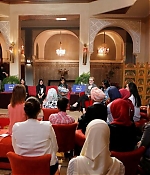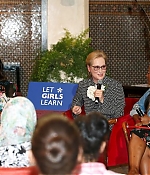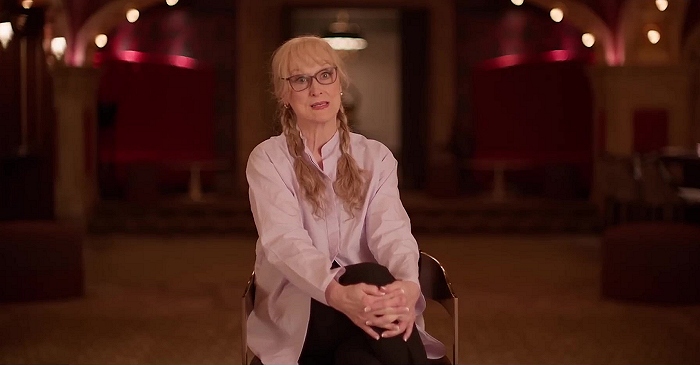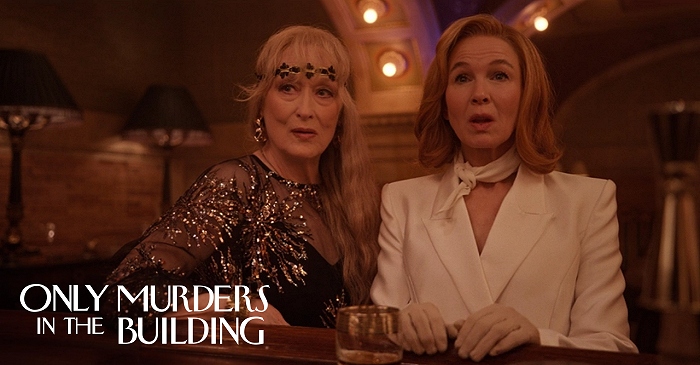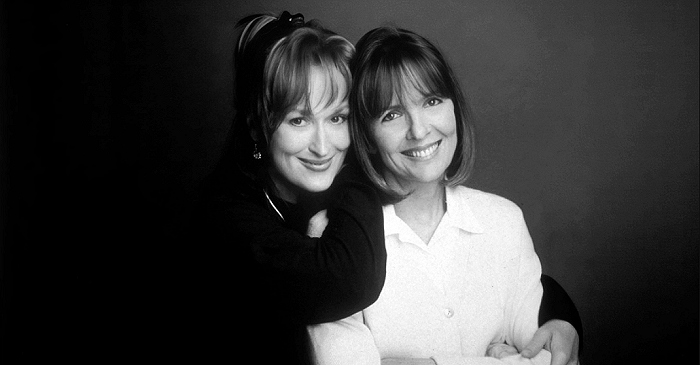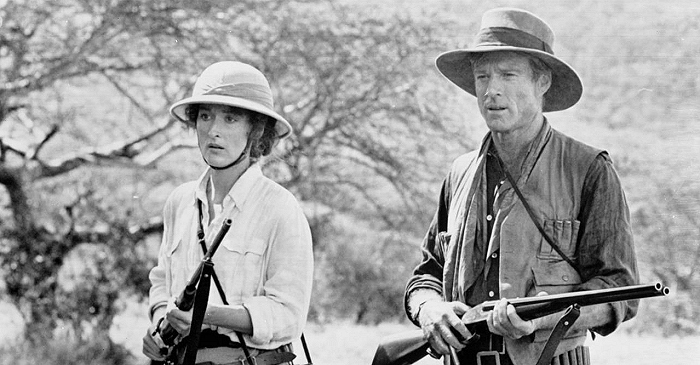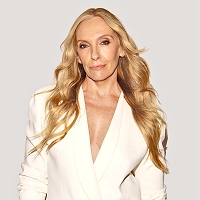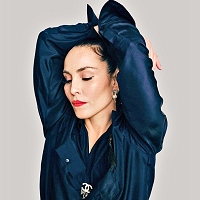|
Simply Streep is your premiere online resource on Meryl Streep's work on film, television and in the theatre - a career that has won her acclaim to be one of the world's greatest living actresses. Created in 1999, Simply Streep has built an extensive collection over the past 25 years to discover Miss Streep's body of work through thousands of photographs, articles and video clips. Enjoy your stay and check back soon.
|
In June 2016, First Lady Michelle Obama and actresses Meryl Streep and Freida Pinto travelled to Morrocco for a program panel called “Let Girls Learn” to educate adolescent girls. Opening the panel, Michelle Obama said: “I am beyond excited to be here with all of you. I have read so much about you. I know your stories, I know your challenges, but, more importantly, I know your triumphs. And I’m so excited to be able to bring a piece of the world here to hear your stories. As you may know, this is the second leg of a three-country tour that I’m on. I just flew in last night from Liberia, and we had an amazing day there with a tremendous group of young women. And Freida did a phenomenal job in moderating a conversation that we had there. So I’m looking forward to adding your voices to this conversation. And we’re doing it in a way where we want to share this conversation with young girls around the world, particularly in the United States. They’re following this tour because, like me, they are outraged at the notion that there are 62 million girls worldwide who are not in school. And the truth is, is that the reasons why girls aren’t being educated are many and varied. There’s no one reason. It varies from community, from society. There are cultural norms that play a role. There are resources that play a role. But we are all coming together, and we will come together as a group of women, to tackle this issue. And in many ways, it’s going to start with your generation. So I am proud of you all. I’m excited to hear from you. And I look forward to answering your questions and hearing more from you.
In a very informative conversation, Streep also talked about her own upbringing and the change of time: ” I grew up at a time in the United States when – neither of my parents graduated from university. My father was in college but had to drop out because of the Depression, they lost all their money. And then in – my mother also was never able to go to university because it was too expensive, no one had any money. So I’m the first. And it was – they were very, very proud of me. And I have two little brothers. But after the war, after the great World War, an enormous push from the American government built thousands of schools. It was a priority. And my father used to complain that the taxes were too high, but he never complained that the schools weren’t good enough because the schools were wonderful, and I’m a product of that event. And I want to help. I know there’s so much work being done by the Moroccan government with the help of USAID, Let Girls Learn, so many NGOs, Peace Corps. And I just want to be here to encourage that, because I wouldn’t sit in this chair without my free education and the help with loans that I got right through my graduate degree. So I’m very happy to be — and I’d like to say that — to really let you start to speak. Because your stories are more interesting than a girl from New Jersey. So I’d like to turn it over to you, Karima. Karima has a particular story, and it’s different from everybody else but I’d like you to talk a little bit about that.
On Morrocco: I think that if Mrs. Obama asked me to road trip anywhere in the world — (laughter) — I would say, “I’m there in five minutes.” But it was especially interesting to me to come to Morocco, because I’m aware that here in this country, there is a special push in order to enable girls beyond primary level education to go on to secondary school, to university. And I want to help that happen all over the world. I work with a lot of different organizations to that end. But I haven’t really traveled and gone into homes and spoken to individuals. Every single person’s story is different. And it’s been exhilarating, and moving, and funny, and fun to be here on the ground. I am the Moroccan team here. (Laughter.) This is the Liberia team. (Laughter.) But I’ve been holding down the fort, couldn’t wait for you to come and experience it.




